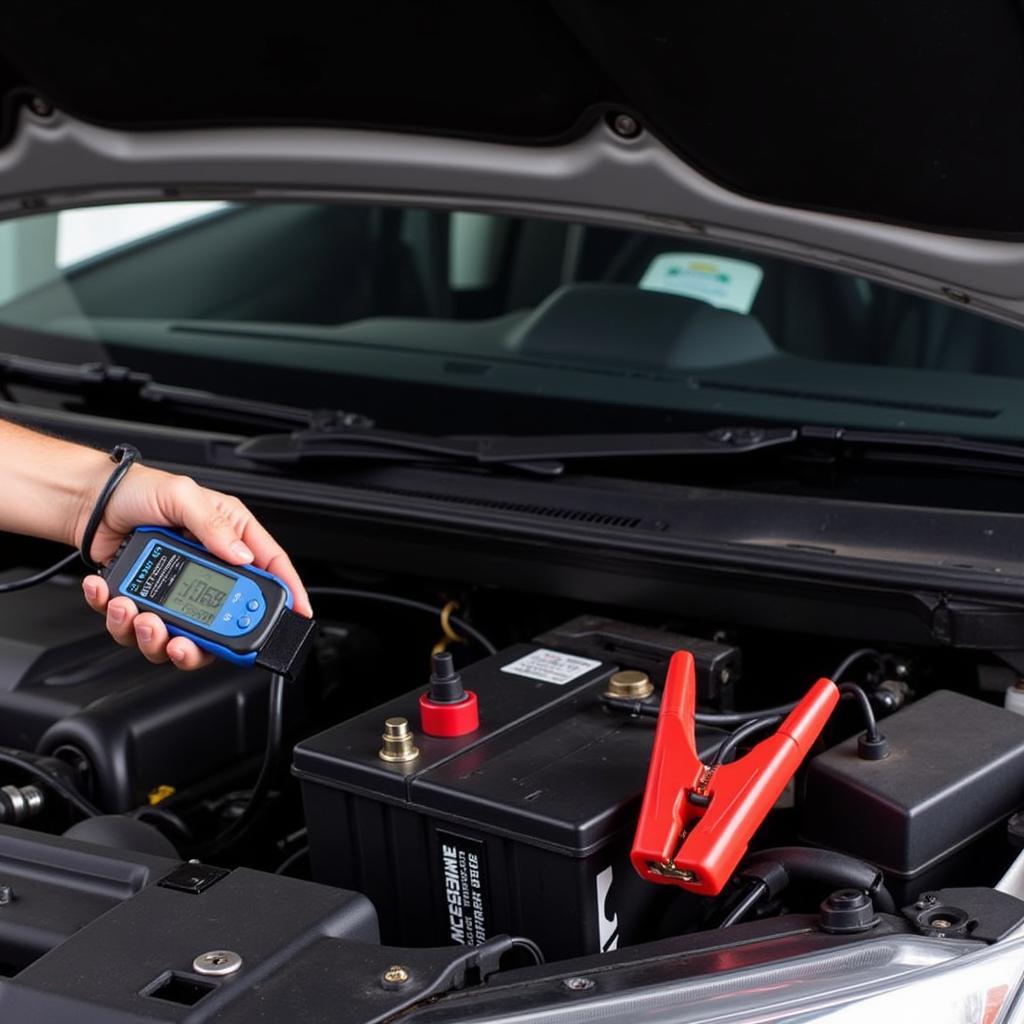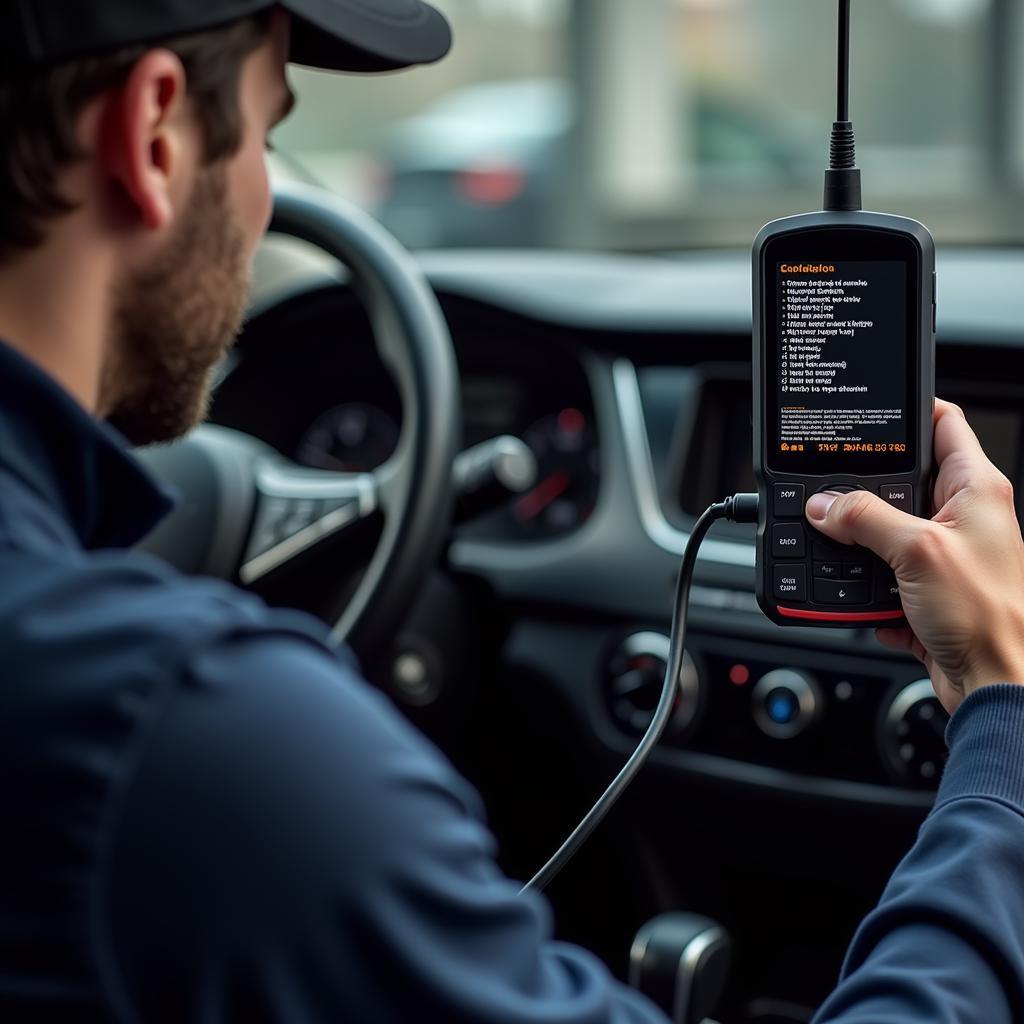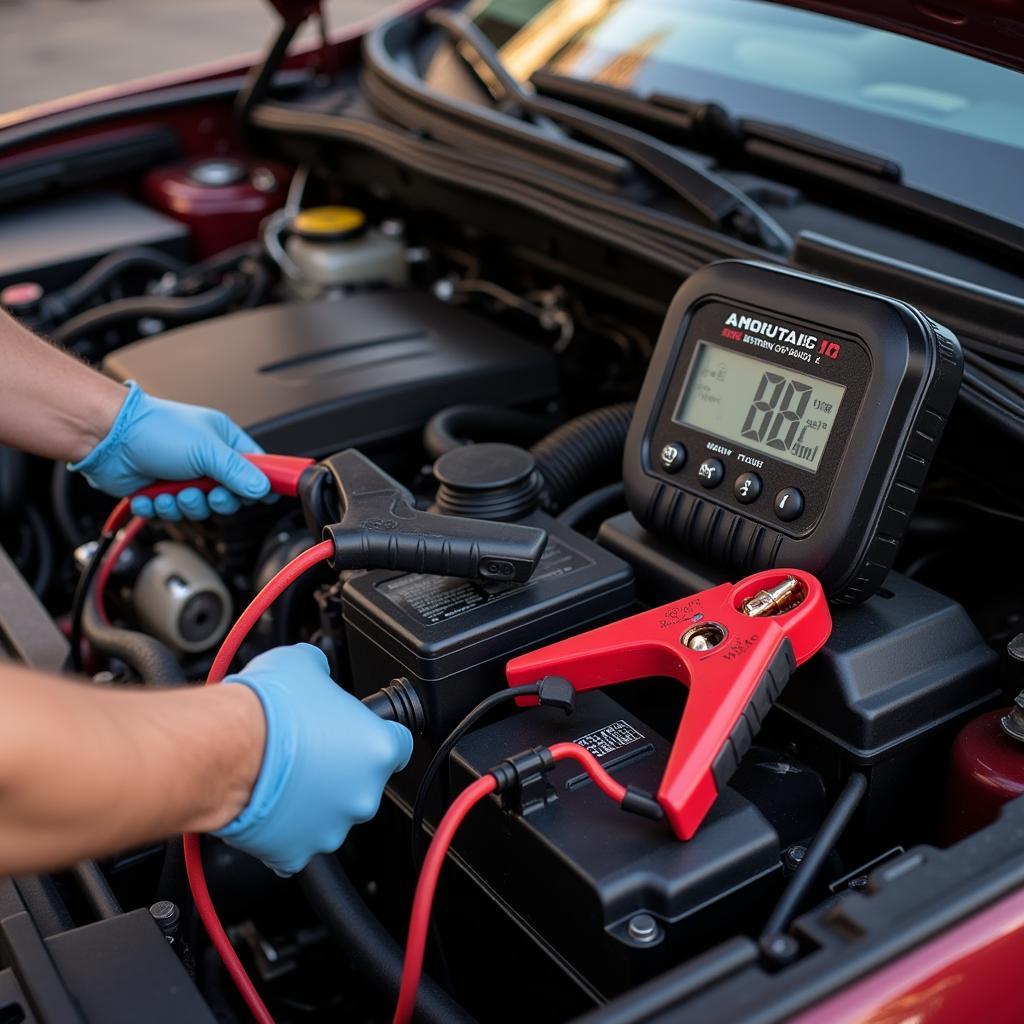If your car has problem starting and the check engine light is on, you’re likely experiencing a common yet frustrating issue. This dual problem can stem from a variety of reasons, ranging from simple fixes to more complex mechanical failures. Understanding the potential causes and troubleshooting steps can save you time and money. Let’s delve into the most probable culprits and how to address them.
Understanding the Check Engine Light and Starting Problems
The check engine light is your car’s way of telling you something isn’t right. It can illuminate for various reasons, from a loose gas cap to more serious engine problems. When coupled with starting difficulties, the situation warrants immediate attention. One common thread linking these two issues is often related to the fuel, air, or ignition systems. After all, these three components are essential for your engine to start and run smoothly.
A failing fuel pump, for instance, can prevent sufficient fuel from reaching the engine, leading to hard starts or a no-start condition. Similarly, a faulty ignition coil can disrupt the spark plugs’ firing sequence, making ignition difficult. Even something as seemingly minor as a dirty air filter can restrict airflow, hindering the engine’s ability to start properly.
Some car models are known for having recurring problems. You can read more about common kia car problems.
Common Causes of a Car Not Starting with the Check Engine Light On
Faulty Fuel System Components
A malfunctioning fuel pump, clogged fuel filter, or faulty fuel injectors can restrict fuel flow to the engine, resulting in starting problems. If you suspect a fuel system issue, you can try listening for the fuel pump’s priming sound when you turn the key to the “on” position. A lack of sound might indicate a faulty pump.
Ignition System Issues
Worn-out spark plugs, failing ignition coils, or a faulty crankshaft position sensor can prevent the engine from igniting the air-fuel mixture. If you smell gasoline after attempting to start the car, it could indicate a spark plug or ignition coil issue.
Air Intake Problems
A dirty air filter, a clogged mass airflow sensor (MAF), or a vacuum leak can disrupt the proper air-fuel mixture required for combustion, leading to starting difficulties.
Battery and Alternator Problems
While less likely to trigger the check engine light directly, a weak battery or a failing alternator can contribute to starting issues. A simple battery test can rule out this possibility.
 Car Not Starting and Check Engine Light On
Car Not Starting and Check Engine Light On
Troubleshooting Steps
Checking the OBD-II Codes
The first step in diagnosing the problem is retrieving the diagnostic trouble codes (DTCs) stored in your car’s onboard computer. This can be done using an OBD-II scanner, which can be purchased at most auto parts stores. The codes will provide valuable clues about the underlying cause of the check engine light.
Inspecting the Battery and Alternator
A simple voltage test can determine if the battery and alternator are functioning correctly.
Checking Fuel System Components
Check the fuel pressure using a fuel pressure gauge to ensure the fuel pump is delivering adequate pressure. Inspect the fuel filter for clogging and the fuel injectors for proper operation.
Examining the Ignition System
Inspect the spark plugs for wear and tear and test the ignition coils for proper firing.
Investigating Air Intake Issues
Check the air filter for dirt and debris and clean or replace it as needed. Inspect the MAF sensor for contamination and clean it with a specialized MAF sensor cleaner.
What if the Problem Persists?
If you’ve tried the basic troubleshooting steps and the problem persists, it’s time to seek professional help. A qualified mechanic can perform a more thorough diagnosis and pinpoint the exact cause of the issue. Remember, ignoring the problem could lead to more extensive and costly repairs down the road.
If you are looking for reliable cars, check out this article about cars with less mechanical problems.
Quote from John Davis, ASE Certified Master Technician: “A check engine light combined with starting problems is a serious indicator that something is amiss. Don’t delay in getting it checked out by a professional.”
Conclusion
When your car has problem starting and the check engine light is on, it signals a potential issue that needs immediate attention. By understanding the common causes and following the troubleshooting steps outlined above, you can take the first steps towards resolving the problem. Remember, a timely diagnosis can prevent further damage and save you money in the long run. If the issue persists, don’t hesitate to contact us at AutoTipPro at +1 (641) 206-8880 or visit our office at 500 N St Mary’s St, San Antonio, TX 78205, United States.
Sometimes, problems starting your car might be related to the season. For example, there are several common issues with summer cars. You can learn more about my summer car common problem.
 OBD-II Scanner Diagnosing Car
OBD-II Scanner Diagnosing Car
Quote from Sarah Miller, Automotive Engineer: “Modern cars are complex machines. Using an OBD-II scanner is crucial for understanding what’s happening under the hood.”
FAQs
- What does it mean when my car won’t start and the check engine light is on? It indicates a problem within the engine’s systems, requiring immediate diagnosis.
- Can a bad battery cause the check engine light to come on and prevent the car from starting? While a bad battery can hinder starting, it typically doesn’t directly trigger the check engine light.
- How do I check my car’s diagnostic trouble codes (DTCs)? Use an OBD-II scanner to retrieve and interpret the DTCs.
- Is it safe to drive my car if it’s hard to start and the check engine light is on? It’s best to avoid driving and seek professional help to prevent potential further damage.
- What are the most common causes of starting problems and a check engine light? Fuel system, ignition system, and air intake issues are among the most frequent culprits.
- How much does it typically cost to fix a car that won’t start and has the check engine light on? The cost varies widely depending on the underlying problem.
- Can I fix the problem myself? Basic troubleshooting can be performed at home, but more complex issues require professional expertise.
For more information about car issues, check out car problems fyi. You can also learn more about car starter problem when hot.






Leave a Reply